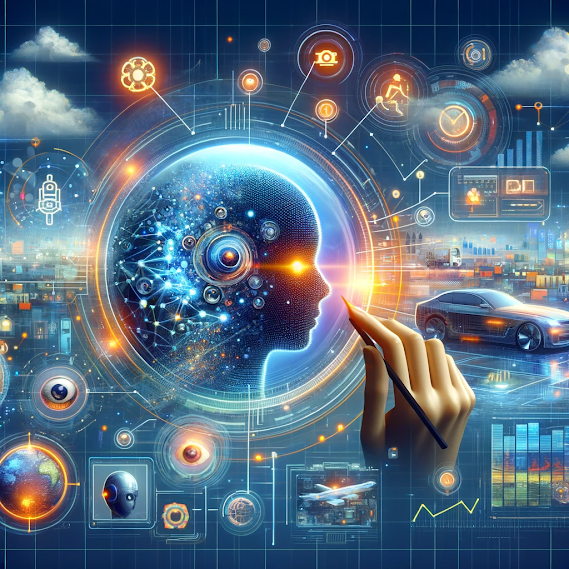Artificial Intelligence: A Catalyst for Transforming Modern Healthcare
Artificial Intelligence: A Catalyst for Transforming Modern Healthcare
In a world grappling with increasing longevity, escalating healthcare costs, and ever-evolving patient expectations, modern healthcare systems find themselves at a crossroads. The challenges are manifold, necessitating a paradigm shift in healthcare delivery and patient care. This is where the integration of Artificial Intelligence (AI) steps in, offering a transformative approach to these burgeoning challenges, enhancing healthcare outcomes and revolutionizing patient care.
The Growing Need for #AI in Healthcare
👴 The demographic shift towards an aging population puts a significant strain on healthcare systems worldwide. By 2050, projections indicate that one in four individuals in Europe and North America will be over the age of 65. This trend underscores the urgent need for innovative solutions to handle the increasing demand for healthcare services, soaring costs, and the challenges faced by a workforce under immense pressure. AI emerges as a pivotal tool in addressing these multifaceted issues, offering to automate and enhance healthcare processes.
AI: Enhancing Healthcare Productivity and Efficiency
🚀 AI's potential in healthcare is vast and multidimensional. It promises not just incremental improvements but substantial enhancements in care outcomes, patient experiences, and access to healthcare services. By boosting productivity and efficiency, #AI enables healthcare systems to offer superior care to a broader segment of the population. This leap in healthcare service delivery is crucial in meeting the growing demands of an aging society.
Improving the Work Life of Healthcare Practitioners
🤖 One of the most significant impacts of #AI in healthcare is on the professionals who form its backbone. AI's role in automating routine and administrative tasks allows healthcare workers to dedicate more time and attention to direct patient care. This shift not only reduces the workload and burnout among medical professionals but also leads to improved job satisfaction and better patient-caregiver interactions.
AI's Current and Future Impact in Healthcare
🔍 AI is already making impressive strides across various healthcare sectors. Its capability to connect and analyze disparate patient data is revolutionizing decision-making processes. In both acute and post-acute care settings, AI's role in automating vital sign monitoring is a game-changer, reducing the scope for human error and enhancing patient care.
Beyond the confines of hospital walls, AI's integration with wearable technology is facilitating convenient at-home data collection. This development is pivotal in remote patient monitoring, allowing for continuous care and early intervention, thus preventing hospital readmissions and enhancing patient outcomes.
AI in Predictive Analytics and Resource Optimization
On an enterprise level, #AI is instrumental in optimizing the use of resources. Through predictive analytics, #AI tools can forecast patient influx, manage staff scheduling, and ensure optimal use of medical equipment. This level of resource management is crucial in maintaining a sustainable healthcare ecosystem, particularly in the face of rising operational costs.
The Future of AI in Healthcare
Looking forward, the integration of #AI in healthcare promises a future where personalized medicine becomes a reality. AI's ability to analyze vast datasets can lead to more accurate diagnoses and tailored treatment plans, catering to the unique genetic makeup of each patient. This shift towards personalized healthcare is not only more effective but also minimizes the risk of adverse drug reactions and ineffective treatments.
Ethical Considerations and Challenges
As with any technological advancement, the integration of AI in healthcare is not without its challenges. Key among these is the ethical consideration regarding patient data privacy and security. Additionally, there is a need to address the potential biases inherent in AI algorithms to prevent disparities in patient care.
📈 While AI's potential in healthcare is immense, it also sparks ethical debates about data use and #AI application. The EIT Health and McKinsey & Company report explores these aspects, focusing on how AI impacts practitioners and organizations across Europe and beyond.
Tthe integration of AI in healthcare is a beacon of hope in addressing some of the most pressing challenges faced by modern healthcare systems. From enhancing the efficiency of care delivery to revolutionizing patient treatment and experience, AI holds the potential to transform the healthcare landscape. As we move forward, it is imperative to navigate the challenges and ethical considerations thoughtfully, ensuring that AI serves as a tool for enhancement and equity in healthcare. The future of healthcare, powered by AI, is not just about technological advancement, but about creating a more responsive, efficient, and patient-centric healthcare ecosystem.
🔗 Empower your business and employees with #AI applications. Connect with NeuralPit (https://neuralpit.com).

.png)
.jpeg)


Comments
Post a Comment